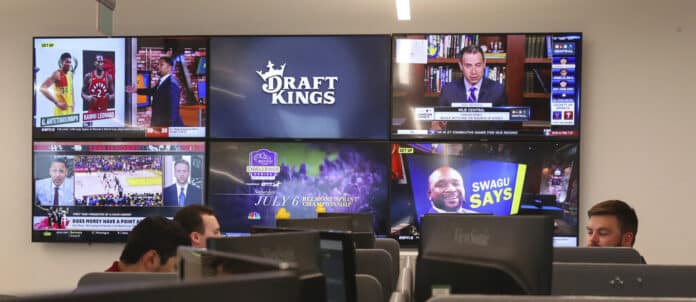The legalization of online sports betting in New York has sparked a significant increase in advertising from major sportsbooks. According to Pathmatics, FanDuel, DraftKings, Caesars, MGM, and Wynn spent a combined $25.6 million on display, OTT, and social advertising in January. According to iSpot.tv, the six major sportsbooks spent a combined $86.4 million on national TV advertising from December 2021 through January 2022. This represents a significant increase from the previous year, with FanDuel and DraftKings spending $10.7 million and $10.8 million, respectively.
The increased advertising is an effort by sportsbooks to convert as many people as possible to sports betting as soon as possible, according to Heather Gundry, SVP and Director of Local Investment for Dentsu, who buys media for a sportsbook client. She explains that the goal is to get the largest share of voice and attract the most first-time depositors, as research has shown that once a customer signs on with one sportsbook, they tend to stay with that sportsbook.
However, the NFL, whose playoffs started on January 15th, only allows seven of its approved partners to advertise during the games, with only six 15-30 second spots per broadcast. This means that there are only seven spots for seven advertisers to fight for. The NFL playoffs have been a key driver for sportsbook advertising, with the NFL starting to allow sportsbook ads during games last year.
Despite concerns about burnout, media agencies like Dentsu were prepared to roll out their marketing blitz campaigns in New York. Dentsu and other agencies have recently done the same in West Virginia in 2018 and Louisiana, which legalized sports gambling in the fall.
However, responsible gambling amendments have been introduced in New York. Bill S1550 would require all advertising for sports betting and gambling to include warnings about the potential harmful and addictive effects of gambling. The NYS Gaming Commission would work with the Commissioner of the Office of Addiction Services and Support (OASAS) to include a problem gambling hotline number in all advertisements for gaming activities. Bill A1056 would establish a problem gambling advisory council to make findings and recommendations to the governor and the legislature on how to prevent and treat problem gambling in the state.
In conclusion, the legalization of online sports betting in New York has led to a significant increase in advertising from major sportsbooks as they compete for a share of bettors. However, with only limited opportunities to advertise during NFL games and concerns about responsible gambling, it remains to be seen how effective these marketing campaigns will be in the long run. Nevertheless, the trend of increased advertising in sports betting is expected to continue as more states legalize sports gambling.










